Editor's note: The story of Mr. Luong Hoai Nam, General Director of Bamboo Airways, being temporarily suspended from leaving the country because the company owed taxes has opened up a debate about the role of temporary suspension of exit in tax debt collection. For businesses that deliberately delay and refuse to pay taxes, applying strong measures is necessary. However, many businesses are upset when their leaders are delayed in leaving the country when they only owe 1-10 million VND in taxes. The series of articles "Behind the temporary suspension of businessmen's exit to collect tax debts" by VietNamNet provides multi-dimensional perspectives from businesses and authorities to find suitable solutions to this problem. |
Lesson 1: Businessman delayed from leaving the country due to debt of several million or billions: 'I don't joke about my career'
Lesson 2: General Department of Taxation leaders: Do not rigidly postpone the exit of tax-indebted businessmen
Few people trade their reputation to delay paying a few million dong in taxes.
As VietNamNet has mentioned, many businesses are upset when their leaders are delayed from leaving the country because they only owe 1-10 million VND in taxes. Many cases do not know they owe taxes and are delayed from leaving the country until they arrive at the airport.
Talking to VietNamNet reporter, Mr. Chung Thanh Tien, Accounting Association Understand correctly - Do correctly, shared: Many individuals have many sources of income, but due to not paying attention, the income paying unit has not declared taxes, causing them to fall into tax debt. The tax debt is only a few million VND. The tax debt information displayed on the system for more than 90 days, some tax agencies just transfer the file to the immigration management agency to carry out procedures to temporarily suspend the exit of individuals with tax debt. When they go to the airport to go on a business trip abroad, they are "shocked" because they are stopped and notified of temporary suspension of exit. That is absolutely not recommended.
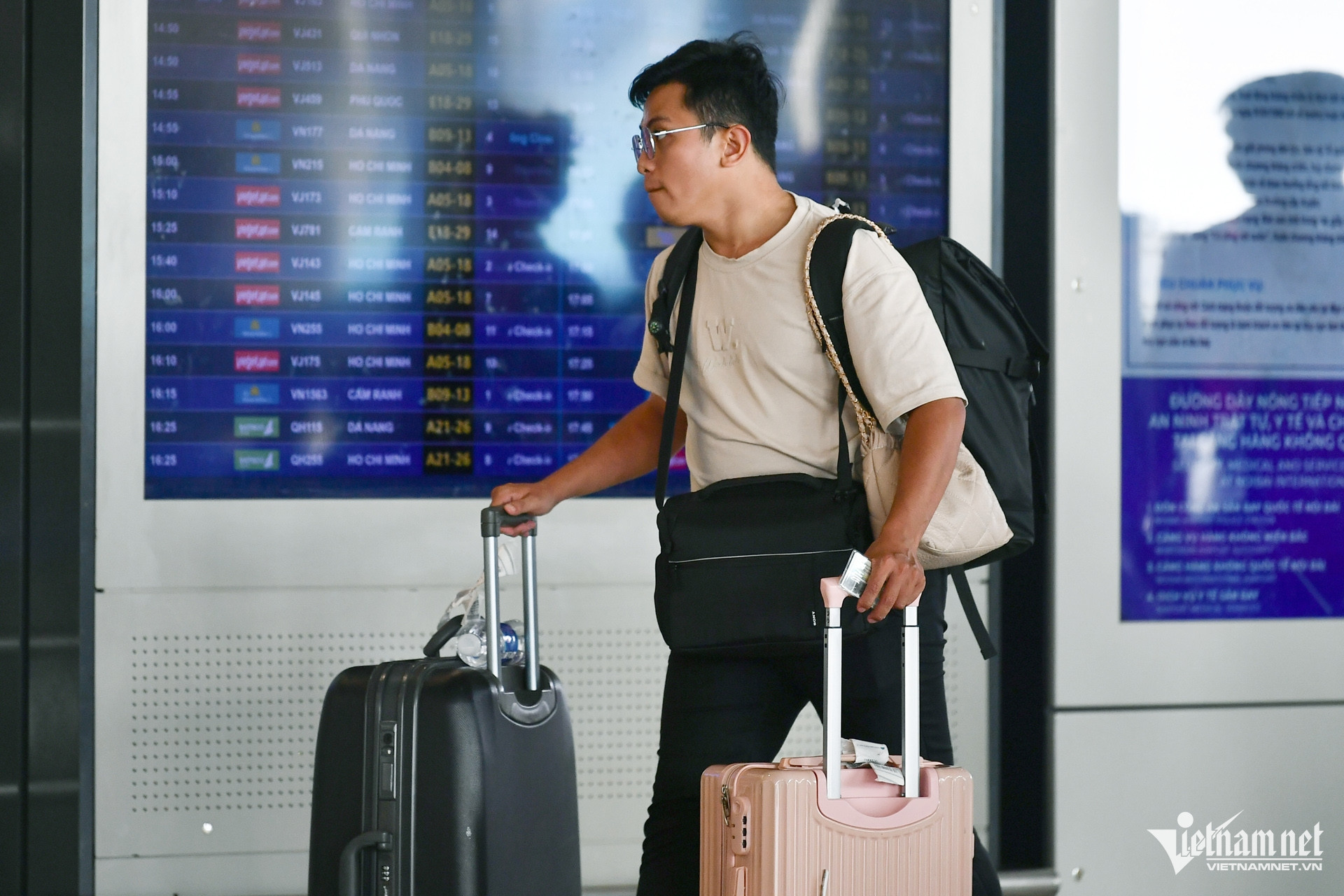
“The tax authority must find a way to contact the person whose exit is suspended. If there is a full notice and warning, few people would trade their reputation to delay paying a few million dong in tax. The tax authority needs to review this and not rush to decide to suspend the exit of a tax debtor,” Mr. Tien said.
Tax expert Cao Xuan Thi also raised the question of whether the tax authority has fully informed the legal representative of the enterprise. If they only find out at the airport that they have been suspended from leaving the country, it means that the information to the enterprise or the legal representative is not complete. This will require a review of the process.
According to Mr. Thi, before applying the measure of temporarily suspending exit from the country for individuals, there needs to be a complete information process so that tax debtors know that they are on the list of tax debtors and must complete their tax obligations before being allowed to exit the country.
"If the tax authority does not have enough resources to do this, another agency responsible for immigration must notify the legal representative so that they know that they are in tax debt and have their exit suspended. Because no one will delay a few million dong to the point of having their exit delayed, affecting their business as well as their reputation," Mr. Cao Xuan Thi shared.
If the enterprise commits to pay taxes, it will not be suspended from leaving the country.
Mr. Chung Thanh Tien, Accounting Association Understand Right - Do Right, emphasized that tax debt collection is one of the solutions to help ensure revenue for the state budget. For businesses that deliberately delay and refuse to pay taxes even though the tax authorities have applied all the measures prescribed by the Law on Tax Administration such as withdrawing bank accounts, requesting the Department of Planning and Investment to withdraw business licenses, etc., temporarily suspending exit is the right thing to do.
However, tax authorities must follow each step in the Law on Tax Administration; if all coercive measures are taken but tax debt is still not collected, then the file will be transferred to the immigration authority to notify the issuance of a decision to temporarily suspend exit from the country for individuals with tax debts or legal representatives of tax-debting enterprises.
“For businesses facing difficulties due to the impact of the economic recession, unable to balance cash flow and therefore unable to pay taxes, it is necessary to find support solutions. Tax debtors should meet with tax authorities to clearly state their difficult situation, have a written commitment to pay gradually or have a bank guarantee the payment, then the tax authorities should also handle the situation gently so that they can find a solution, do not rush to apply measures to temporarily suspend exit.
The Law on Tax Administration has clearly regulated this issue. Tax authorities should consider and guide taxpayers to implement it instead of just postponing exit," Mr. Tien stated his opinion.
In cases where businesses owe taxes but still have unresolved tax refunds because they have not met the requirements for documents and procedures, Mr. Tien proposed considering creating conditions to simplify procedures, so that they can offset tax debts and not apply measures to temporarily suspend exit for businesses in this category.
Discussing further on the measure of widely publicizing cases of temporary suspension of exit due to tax arrears in the mass media, Mr. Tien noted: “Doing this will greatly affect the reputation of the enterprise and the ability of the enterprise to recover will be extremely difficult. We must also think about the consequences: If the enterprise is dissolved, who will take care of the enterprise's workforce?”
In addition, Mr. Chung Thanh Tien also recommended that the management agency review the regulation on temporary suspension of exit for foreign enterprises whose legal representatives are foreigners. According to current regulations, in the case of a Vietnamese tax debtor, only after applying coercive measures but still unable to collect the tax debt will the measure of temporary suspension of exit be applied. In the case of a foreign tax debtor enterprise, the Law on Entry and Exit stipulates that a foreigner “has not fulfilled the tax payment obligation”, meaning that regardless of the minimum debt amount, without going through coercive steps, the tax authority can still have the right to transfer the file to the immigration management agency, immediately issuing a decision to temporarily suspend the exit and entry of the legal representative of the enterprise. “It is necessary to review to have consistency in legal regulations,” Mr. Tien emphasized, saying that this needs to be thoroughly considered to ensure the business environment. |
Source: https://vietnamnet.vn/khong-de-doanh-nhan-ra-san-bay-moi-biet-bi-hoan-xuat-canh-2325615.html




![[Photo] Binh Trieu 1 Bridge has been completed, raised by 1.1m, and will open to traffic at the end of November.](https://vphoto.vietnam.vn/thumb/1200x675/vietnam/resource/IMAGE/2025/10/2/a6549e2a3b5848a1ba76a1ded6141fae)













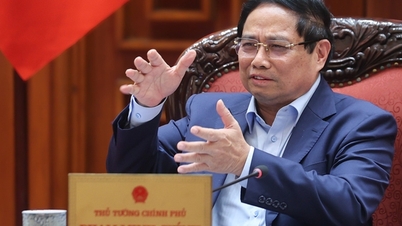




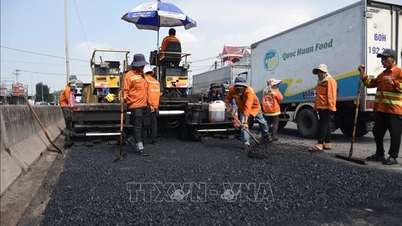
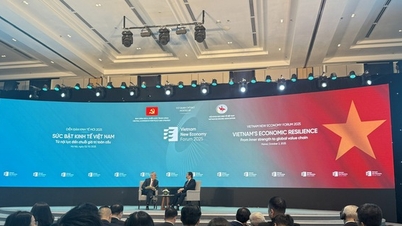


























































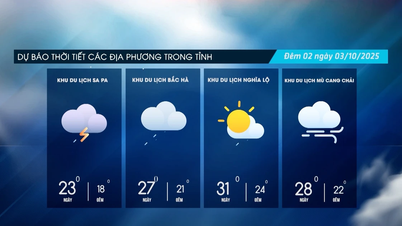

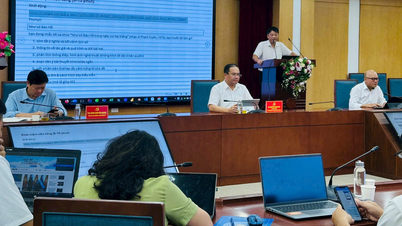














Comment (0)